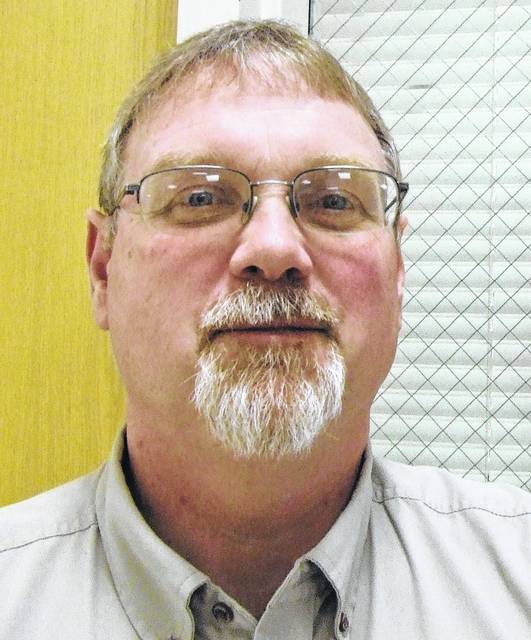
The heat this week has certainly been like the old saying, “Out of the frying pan and into the fire.” I am hopeful that the extreme heat now does not mean extreme cold later.
As I have stated before, I really enjoy the fall season and I am looking forward to cooler temperatures so I can enjoy the Corn Festival this weekend. I hope the tropical storm down south does not dampen the spirit of everyone and we can all enjoy the Corn Festival.
The recent heat has also really made crops move closer to harvest ready. Soybeans especially have been turning fast and many corn fields have turned as well.
There are some rumors that a few fields of corn may be harvested this next week. It will be interesting to hear the reports.
Before we get to Farm Science Review (Sept. 18-20) we will have several potential soybean fields ready for harvest as well. I still think we have some of the best crops in Ohio. Only harvest will tell us the real story on that.
With the beginning of harvest season comes lots of extra farm equipment on our roadways. Start preparing yourself for roadway safety.
Farm machinery moves much slower and is significantly larger than our normal car and pickups so stay alert, avoid distractions, and give yourself some extra time to get to your destinations.
Since we are on the topic of harvest, start thinking about combine safety before you get to the field.
The most important piece of equipment during harvest is the combine and safe operation of the combine starts with the operator.
Ag safety specialists suggest combine operators should consider these guidelines during harvest:
• Follow the procedures in the operator’s manual for safe operation, maintenance, dealing with blockages and other problems.
• Check all guards are in position and correctly fitted before starting work. Do not run the combine with the guards raised or removed.
• Keep equipment properly maintained and insure equipment has adequate lighting for working in low light conditions.
• Reduce the risk of falls by ensuring access ladders, steps, or standing platforms are clean and free of mud or debris.
• Never carry passengers on the combine unless seated in a passenger seat and do not mount or dismount the combine when it is moving.
• Make sure to keep cab windows clean and mirrors are properly adjusted. Operator vision to the rear may be poor so be particularly careful when reversing.
• Keep the cab door shut to keep out dust and reduce noise. Ensure any pedestrians are clear of the combine before moving.
• Be alert to your surroundings. Know where other equipment is being positioned and be observant to individuals who may be walking around the equipment. Maintain eye contact and communicate your intentions with the other person.
• When unloading the combine on the move, you will need to plan and coordinate your movements carefully to match the tractor/grain cart working with you.
• Remember the hazards posed by straw choppers and spreaders – allow adequate rundown time before approaching the rear of the combine.
• Do not operate the machine beyond its capacity or overload it.
• Regularly clean straw and chaff deposits from the engine compartment and around belts or pulleys to reduce risk of fire.
• Carry suitable fire extinguishers. These should be regularly checked and properly maintained/ serviced.
• Use extreme caution when working around overhead power lines, especially when extending the unloading auger or bin extensions.
– Follow correct procedures when transferring the header on and off the header cart, or working under the header (use the manufacturer’s safety supports).
• Utilize safe travel routes between fields, and take into account overhead and roadway width clearances.
• Pre-plan road travel to account for potential problems with automobile traffic. Utilize escort vehicles when needed.
Remember to take farm safety seriously.
We all get sidetracked from time to time when working on the farm. Some proper planning and thinking can alleviate an accident in many situations.
Talk to everyone involved in the farming operation about farm safety and make everyone involved aware of potential hazards around equipment, grain storage, and safe operation of all equipment.
Tony Nye is the state coordinator for the Ohio State University Extension Small Farm Program and has been an OSU Extension Educator for agriculture and natural resources for over 30 years, currently serving Clinton County and the Miami Valley EERA.


